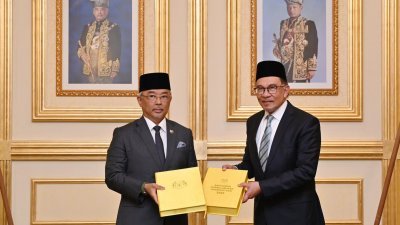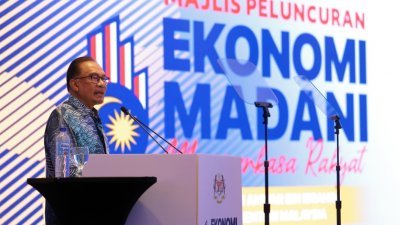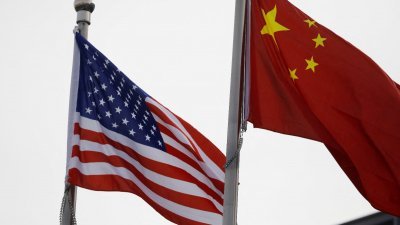马六甲海峡是全球最繁忙的海域之一,古往今来都是东西方贸易的关键枢纽,连接著东南亚和世界各地的贸易网络。14世纪时,马六甲就因此成了来自印度、中国、阿拉伯、波斯等地的商人交汇处,也是海上丝绸之路的重要节点。如今,马来西亚作为一个发展迅速的亚洲国家,其贸易地位依然不可忽视。凭借著现代化的港口设施和稳固的经济基础,马来西亚继续在全球贸易中扮演著重要角色。
至今,马来西亚已签署并实施了共计16项自由贸易协定(其中包括7项双边自贸协定和9项区域性自贸协定)。值得注意的是,在2022年,马来西亚实施了两项巨型自贸协定,即《区域全面经济伙伴关系协定》(RCEP)和《全面与进步跨太平洋伙伴关系协定》(CPTPP)。
在2022年,涵盖区域和双边自贸协定国家的贸易总额占到了马来西亚总贸易的67.3%,总值为1.916兆令吉。对自贸协定国家的出口总额为1.069兆令吉,进口总额为8470.6亿令吉,形成了2219.4亿令吉的顺差。然而,如何从庞大的贸易额受益是投资者关注的问题。
其中一个可从庞大贸易增长中受惠的行业就是物流业。物流行业作为全球供应链的关键环节,扮演著连接生产地到终端用户的重要角色,负责产品的运输、仓储和分销。在电子商务的蓬勃发展和全球化的推进下,物流行业迎来了挑战和机遇。为了在竞争激烈的市场中取得成功,公司需要不断创新和优化运营模式。除此之外,从事物流业务的公司也为投资者把握住贸易额增长的机会。
迈入8月的第一天,大马交易所将迎来今年首家物流公司KGW集团(0282,创业板)上市。根据配股抽签结果,该公司获得投资者超额认购达50.45倍,显示投资者憧憬上市第一天将获得客观回报。
三低模式
投资者可能注意到了该公司“三低”特点,即低资产、低杠杆、低估值(本益比维持在单位数)。低资产模式意味著公司减少固定资产投资,更依赖外部合作伙伴和资源。在物流行业,采用轻资产模式带来了多重优势。轻资产模式赋予公司灵活应对市场波动和变化的能力,快速调整业务规模和战略,更好地适应不断变化的客户需求。
另外,通过减少固定资产投资,公司获得更高的资本效率,将更多资金投入业务拓展、技术创新和市场推广,实现更快速的增长。
低杠杆是指公司在运营过程中负债相对较少的情况。在当前货币紧缩的宏观经济环境下,减债成为一种明智之举。投资者在考虑还债这一事项时,应该进行深入的研究,判断债务是属于良债还是坏债。
良债是指公司向银行或金融机构借贷,将资金用于资本开销,例如扩大生产能力或进行技术创新。这种债务通常用于增加公司的生产能力和市场份额,从而带来未来的收益和利润增长。因此,良债不仅能够提高公司的生产效率和竞争力,还有助于为投资者创造长期价值。
反之,坏债则是指公司在借贷过程中,用借来的资金进行不明智的投资或过度消费,导致难以偿还。这种债务可能对公司的财务状况造成负面影响,增加了财务风险。投资者应当警惕这类坏债,因为它可能会对公司的健康发展和投资者的回报造成损害。
因此,投资者在考虑公司的债务情况时,应当审慎判断是否为良债或坏债。选择低杠杆的公司,能够降低财务风险,提升公司的财务稳健性,为未来的发展奠定坚实基础。譬如,公司举债来购置产业,扩充仓库容量来服务客户应该被归纳为资本开销(capital expenditure),意味著对财务表现有正面的影响。
低估值
低本益比意味著低估值,这可为投资者提供较高的回报潜力。因为,以低估值购买公司股票,有望享受潜在的资本增值。如果市场对该公司的前景逐渐改善,股价可能会反映出其真实价值,投资者则可以在股价上涨时获得盈利。尤其在物流行业,随著全球贸易的增长和电子商务的兴起,物流公司的前景可能具有良好的增长潜力,低本益比可以为投资者提供较为吸引人的入场机会。
不过,对于投资物流公司,也有几个风险需要特别注意。首先是运费的起伏不定。物流公司的运营受到多种因素影响,包括原油价格、运输需求、货物种类等,这些因素都会导致运费的波动。价格上涨可能会增加公司的成本压力,从而影响其盈利能力。
其次是地缘政治风险。物流业通常涉及跨国界运输和贸易,而不稳定的地缘政治局势可能导致运输延误、限制进口出口等问题,影响公司的业务稳定性和发展。
第三是保险覆盖不足。物流公司承担著货物运输的风险,但在某些情况下可能发生意外事故或货物损失。如果公司的保险覆盖不足,可能导致额外的财务损失和责任风险。最后,像新冠疫情这样的感染性疾病可能会中断供应链。在全球化的物流运作中,突发疫情或其他灾难性事件可能会导致货物运输的中断或延误,影响物流公司的业务运营和盈利能力。
郑荣信《全球贸易协定为物流业带来的机遇》英文版:Logistic sector: Capitalising on Global Trade Agreements
The Malacca Strait has been a pivotal trade hub connecting East and West for centuries, playing a vital role in Southeast Asia's global trade network. Today, Malaysia's rapid development cements its position as an essential player in the global trade arena, with modern port facilities and a robust economic foundation.
Notably, Malaysia has inked and implemented 16 Free Trade Agreements, including 7 bilateral FTAs and 9 regional FTAs. Among these, two mega-FTAs, the Regional Comprehensive Economic Partnership (RCEP) and the Comprehensive and Progressive Agreement for Trans-Pacific Partnership (CPTPP), were executed in 2022.
In 2022, trade with countries under these agreements accounted for 67.3% of Malaysia's total trade, valued at RM1.916 trillion. Exports to FTA countries reached RM1.069 trillion, while imports stood at RM847.06 billion, resulting in a surplus of RM221.94 billion. Investors are now eyeing opportunities to benefit from this substantial trade growth.
One sector set to capitalize on this trade surge is the logistics industry. As a critical link in the global supply chain, logistics companies facilitate the transportation, warehousing, and distribution of products from production sites to end-users. With the rise of e-commerce and globalization, the logistics sector faces both challenges and opportunities, prompting companies to innovate and optimize their operations. These companies present a lucrative avenue for investors to seize on the growing trade volumes.
As August commences, the Malaysian stock exchange welcomes its first logistics company IPO of the year, KGW Group (0282, ACE Market). The company's oversubscription rate of 50.45 times indicates investors' high expectations for substantial returns on its first day of listing.
KGW Group is known for its "Three Lows" approach – low assets, low leverage, and low valuation (P/E ratio in single digits). This strategy involves minimizing fixed asset investments, relying more on external partners and resources, and enhances their ability to adapt swiftly to market fluctuations and changing customer demands. Additionally, reducing fixed asset investments allows the company to allocate more funds towards business expansion, technological innovation, and marketing, driving faster growth.
With a low gearing ratio, KGW Group effectively mitigates financial risks in the current environment of monetary tightening. Investors should conduct thorough research to identify whether the debt is "good" or "bad" – "good" debts used to fund capital expenditures, such as expanding production capacity or investing in technological innovation, typically contribute to future revenue and profit growth. On the other hand, "bad" debts involve imprudent investments or excessive consumption, which could adversely impact the company's financial health and investor returns.
Moreover, the company's low P/E ratio indicates a low valuation, offering investors higher potential for returns. Purchasing stocks at a discounted valuation presents the opportunity for potential capital appreciation as the market recognizes the company's improved prospects. Particularly in the logistics industry, with the growth of global trade and the rise of e-commerce, logistics companies possess significant growth potential, making a low P/E ratio an attractive entry point for investors.
However, investing in logistics companies comes with some risks. First, the fluctuating freight costs can impact operations, as factors like crude oil prices, transportation demands, and cargo types contribute to varying freight charges. A surge in prices may increase cost pressures and impact profitability.
Secondly, geopolitical risks pose uncertainties to logistics operations that often involve cross-border transportation and trade. Unstable geopolitical situations may lead to shipment delays, import-export restrictions, and affect the company's operational stability and growth.
Thirdly, inadequate insurance coverage exposes logistics companies to financial losses and liability risks in case of accidents or cargo damage. Insufficient insurance protection may further impact the company's financial standing.
Lastly, infectious diseases like the COVID-19 pandemic can disrupt supply chains. In the globalized logistics industry, unforeseen outbreaks or other catastrophic events may lead to cargo shipment disruptions or delays, impacting business operations and profitability.
要看最快最熱資訊,請來Follow我們 《東方日報》WhatsApp Channel.


















